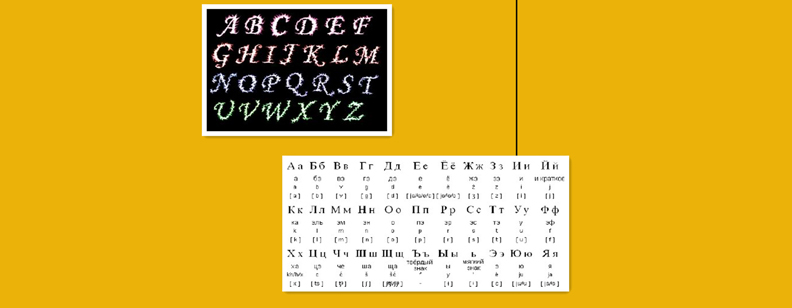Every language reflects a whole culture. People use languages to communicate and it has been used as the most effective tool of communication since its inception. The languages have evolved over the centuries and have been evolving with the emergence of new trends. Languages, like humans, also have families. Languages that come from similar families share striking similarities and are somewhat comprehensible to the people who speak variants of the same families. However, when it comes to the other families, they are more different and barely similar. English and Russian likewise, are two important languages that come from totally different families and are poles apart.
Table of Content
Introduction of Russian & English
Russian language – An overview
Russian is a Slavic language in the Indo-European family—- languages considered difficult for native English speakers because of their different alphabet, complex system of endings, perfective & imperfective verb forms, and unpredictable accents within words, difficult pronunciation, and a different mindset from Romance or Germanic languages.
From the spoken language aspect, the Russian language’s closest relatives are Ukrainian and Belarusian, the other two national languages in the East Slavic group. About 150 million people in Russia and the former republics of the USSR speak Russian as a mother tongue.
English language – A brief introduction
English is a West Germanic language that was first spoken in early medieval England and is now a global lingua franca. It is the third-most-common native language in the world, after Mandarin Chinese and Spanish.
It is widely learned as a second language and is an official language of the European Union, many Commonwealth countries, and the United Nations, as well as in many world organizations.
Differences between Russian and English
There are many differences between English and Russian language in many important aspects. The first and most important difference that one detects is the absence of word endings in English.
The modern Russian language has a developed system of word endings. In a sentence, each word has a way to describe anything you would like. English pays more attention to verbs for describing any situation.
If you observe the differences and composition between English and Russian, the following facts you will see,
Alphabet:
Russian is written using the Cyrillic alphabet. The Russian alphabet consists of 33 letters and some of these letters are similar to letters in the Latin alphabet used in English. While we used the letters as a sample as ABC it’s harder for Russians to learn what seems so easy to us.
Sounds:
If you ever wondered if is Russian similar to English, it is not. The sounds and phonological systems of both languages, particularly are poles apart. The phonological system of Russian is inherited from Common Slavonic. The language possesses five vowels, which are written with different letters depending on whether or not the preceding consonant is palatalized. English has 12 vowel sounds (5 long, 7 short), plus 8 diphthongs.
Russian has a similar number of consonants to English, but their sounds do not fully overlap. The consonants of Russian typically come in plain vs. palatalized pairs, which are traditionally called hard and soft. The Russian syllable structure can be quite complex with both initial and final consonant clusters of up to 4 consecutive sounds.
Russian has variable stress patterns, as in English. English is a strongly stressed language. In content words of any number of syllables, as well as function words of more than one syllable, there will be at least one syllable with lexical stress.
However, Russian learners may give undue prominence to words that English native speakers would swallow. Russian learners may ask questions with falling instead of rising intonation, which does not sound polite to English native speakers.
Dialects:
English has been subject to a large degree of regional dialect variation for many centuries. Its global spread now means that a large number of dialects and English-based Creole languages and Pidgins can be found all over the world. A number of dialects also exist in Russia.
Some linguists divide the dialects of the Russian language into two primary regional groupings, “Northern”, and “Southern”, with Moscow lying in the zone of transition between the two. Others divide the language into three groupings, Northern, Central, and Southern, with Moscow lying in the Central region.
Grammar:
Russian grammar encompasses a highly synthetic morphology and syntax. English grammar has minimal inflection. Russian and English convey meaning through the verb systems in different ways. The Russian system is based in the concept of aspect: actions are either completed or not completed.
This is shown by appending affixes to the verb stem. There are few auxiliary verbs. This contrasts with English, which has progressive and perfect tense forms and avoids the need for affixation or inflection by the extensive use of auxiliaries.
The Russian language has 3 genders: masculine, feminine, and neuter, and six cases: nominative, genitive, dative, accusative, instrumental, and prepositional. This means that there are different endings for adjectives and nouns depending on whether words are singular or plural, and also on the case and the gender of the noun.
English nouns have four genders: masculine, feminine, neuter, and common gender. English has subjective case, objective case, genitive case, determinative genitive pronouns, and nominal genitive pronouns.
There are also differences in rules for pluralization. In English to indicate a plural number of the noun, there is always the same rule (aside from a few exceptions) -s/es ending. But in the Russian language, the way they indicate “more than one” depends on how many items they are talking about as well as on the gender of the items.
Sentence:
Russian tends to use a lot of negative words, and constructions with the negation and double negation; the method of expressing the thought “from the reverse” is frequent. While in English, affirmative sentences prevail, negative structures are rare, and double negation is extremely rare.
Russian sentences are longer than English ones, the reason is that Russian syllables and words are approximately 30-50% longer in Russian and Russians are fond of long and colorful phrases. The English text is composed of comparatively short sentences and brief structures.
In the Russian language, the order of words in a sentence plays a great semantic role, the most important word stands at the beginning. While the word order is fixed, semantic shades of meaning are expressed by other means. In English, there can be one variant.
In Russian language, a lot of sentences begin not with the subject but, an object, and the rhematic information stands at the end of the sentence. In the English language, the sentence begins with the subject as a rule and the rheumatic information is placed at the beginning of the sentence.
Take a look at how we helped our clients by localizing their projects to the Russian language. Click here to read the complete case study









